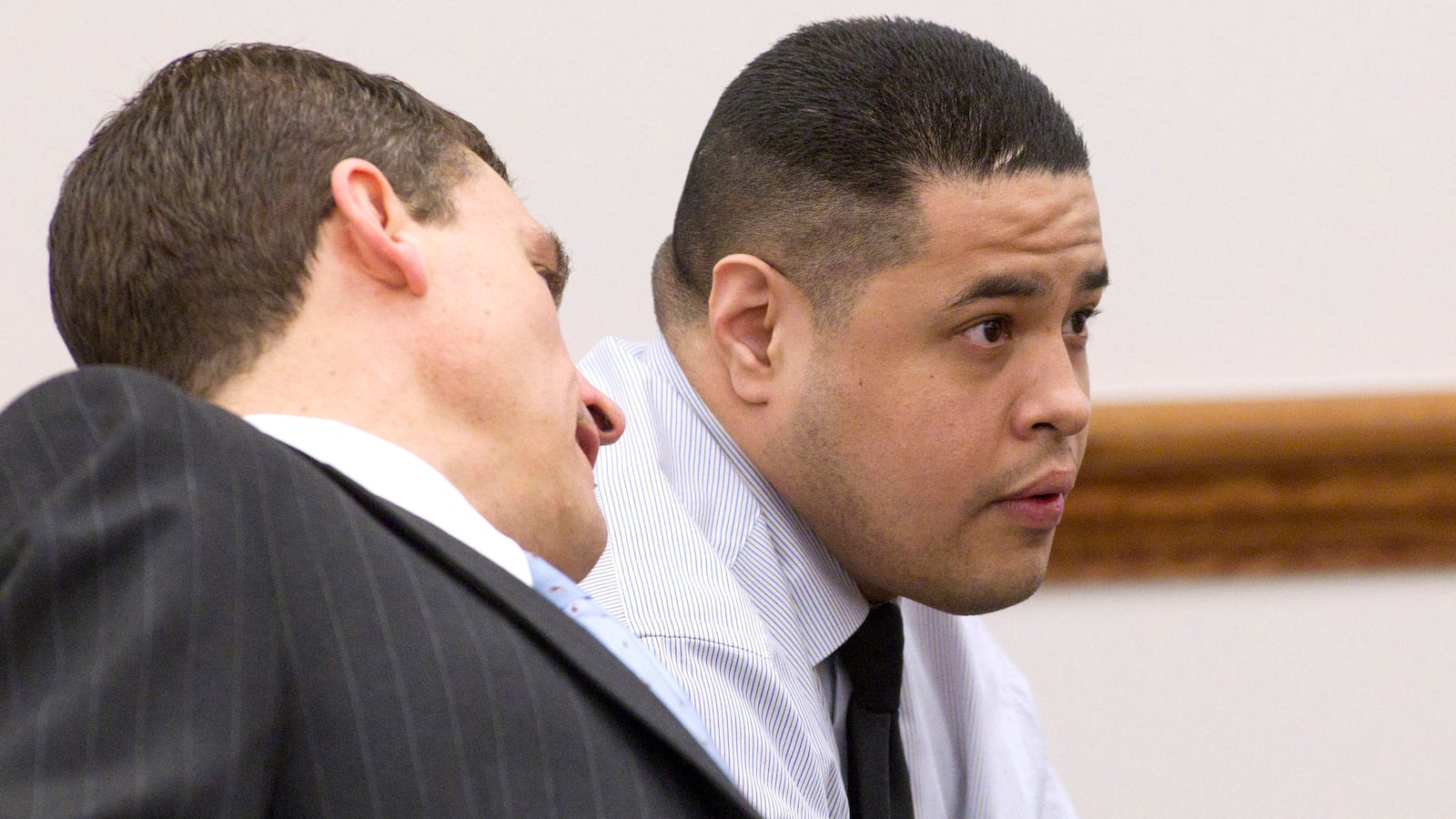A Texas death-row inmate convicted of murdering a 61-year-old woman during a robbery in 2010 was executed on Tuesday night, becoming the state’s sixth execution this year. Mark Soliz, 37, died by lethal injection despite claims by his lawyers that he suffered from fetal alcohol spectrum disorder and therefore should be spared from execution.
Soliz was the 15th prisoner put to death this year. Despite his hopes for a reprieve from the death penalty, Soliz reportedly did not file a last-minute appeal with the Supreme Court. According to The Huntsville Item, Soliz was apologetic to the family of his victim—Nancy Weatherly—in his final statement.
“I want to apologize for the grief and the pain that I caused y’all,” Soliz reportedly said to the two members of the Weatherly family who attended the execution. “I’ve been considering changing my life, it took me 27 years to do so. I don’t know if me passing will bring y’all comfort for the pain and suffering I caused y’all. I’m at peace.”
Soliz and his lawyers went through the appeals process for years, with the most recent denial reportedly coming last week. His lawyers had cited a decision two weeks ago by the 5th U.S. Circuit Court of Appeals, which stayed the execution of Dexter Johnson based on new standards for evaluating mental disability.
“They’re almost identical,” Soliz’s lawyer, Seth Kretzer, said of the two cases.
“It’s simply not right to execute the mentally disabled,” Kretzer said, adding that he knows they may not prevail. “Hope is a very dangerous thing to have in prison. We’ve used every legal tool we can to fight this and now we just have to wait.”
Under the old medical standards, Soliz’s IQ of more than 70 meant he did not qualify as mentally disabled. But under new criteria, Soliz’s lawyers say his diagnosis of fetal alcohol syndrome should qualify him as mentally disabled and ultimately save him from a lethal dose of pentobarbital.
“Because Mr. Soliz suffers from fetal alcohol spectrum disorder, he should be categorically exempted from the death penalty under the eighth amendment to the United States constitution,” his lawyers argued in court documents.
“[Fetal alcohol syndrome] is the functional equivalent of the conditions already recognized as disqualifying exemptions to the death penalty such as intellectual disability.”
Soliz’s mother was a prostitute who drank and huffed glue during her pregnancy. He scored 75 on his last IQ test, which falls within the 70-84 range considered borderline intellectual functioning, according to an evaluation paid for by his lawyers and reported in the Austin Chronicle.
Greg Westfall, who represented Soliz during his 2012 trial, said that in a different jurisdiction, his client would have received a life sentence.
“Johnson County has a huge evangelical presence and a large amount of people who believe in the death penalty,” he said, adding, “and there’s racial overtones to the case. He’s a Hispanic who killed a white grandmother.”
Soliz’s deadly crime spree began in June 22, 2010, when he and co-defendant Jose Ramos stole several guns. The pair went on to steal from several stores and killed a man in one of the robberies, making a widow of his eight-months pregnant wife. (Ramos pleaded guilty and was given a life sentence for the slaying.)
On June 29, 2010, Weatherly, a grandmother and engineer at an aerospace company in Godley, Texas, heard her doorbell ring around 10:30 a.m. and opened her front door to find Soliz pointing a Hi-Point 9 mm semiautomatic handgun in her face.
Soliz brought her inside and began to search the house for valuables. When she asked him not to take her deceased mother’s jewelry box, he told her she would join her mother shortly and shot her in the back of the head.
Johnson County Assistant District Attorney Martin Strahan told a local paper last week that Soliz deserved death. “He was a very dangerous person who would hurt other people if there was ever any chance he might be let loose, which is why we decided to go with the death penalty option,” Strahan said. Fort Worth Detective Danny Paine called Soliz “the most dangerous person he had ever come in contact with during his law enforcement career.”
During the trial, Soliz scratched his gang name, “Kilo,” into the defense table and managed to memorize the mailing address of a potential female member of the jury and wrote her a romantic letter that was intercepted according to the Celburne Times Review.








